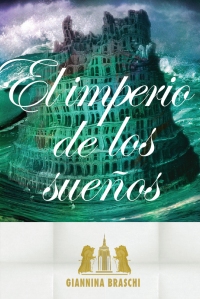There at the Fulton Market—where three roads intersect—was the point where HAMLET, GIANNINA, and ZARATHUSTRA first met. The three had been walking the streets like mad—without stopping to rest—until they came to the South Street Seaport—where flies were harrowing around the halo of the fish market that smelled like the rot of Chinatown. They recognized one another and walked toward each other with dead bodies on their backs.
GIANNINA: I’m burying the sardine—the dead body I carry on my back.
ZARATHUSTRA: A little fish—in a little coffin. And for this—for this little stinky thing—we came from so far?
GIANNINA: Look, it’s moving. It’s still alive.
ZARATHUSTRA: It’s so salty and ugly it itches and bites.
GIANNINA: It worked its whole life in the sludge of oil and vinegar. I’ll sprinkle incense, myrrh, and a pound of gold to be buried with it under the Sand.
HAMLET: Hurry up. The ferry will leave without us.
GIANNINA: You have no idea how much I’ve suffered under the influence of this rigorous but retarded sardine. Not a warrior, but a soldier. Making me vow to its regiment of passive-aggressive work. No traveling was allowed. No smoking allowed. No pets allowed. No one could get near me because the sardine would stink—and its stink would bite. Sometimes it would fly around the rim, but it would always dive back into the can of sardines—looking for its paycheck. Every two weeks—it brought me a salary—the stinky sardine—and I brought home all I could buy with that salary—confinement, imprisonment. Depending on a salary made me salivate—but it blew my mind to dust—the dust that blows around and makes you cough—but you hardly can see it because it’s made of dust. But I’m not made of dust—I’m made of flesh—and making love to the little sardine drove me crazy. It was such a little fish it barely filled my mouth. I could hardly eat it. I grew hungry—hungry for a big fish. God help me—no more fish! Please no clams, no oysters! Please—nothing shelled or scaled! Nothing salted—nothing finned or fanged! Because it had fangs—the sardine had fangs—and it bit me like a rabid squirrel. It must have known I wanted to bury it. Its fangs were long—and its screams were shrill— and it held grudges—and it had bones to pick. It blamed me for keeping it down—but all I wanted was its liberation from the can. I wanted it to breathe clean air—and to sing. Your mouth is already open—now take a deep breath, little fishy, and sing—sing a song of love. You know my cords are made of vibrant colors. You know I too come from the sea—but I don’t come with grudges in my fangs. I come with wings to fly from your stink. I hate sardines.
ZARATHUSTRA: Then why do you eat them?
GIANNINA: Because I detest their helplessness. I wouldn’t eat a lion. It would eat me first. I eat what is weaker than me. I like lamb. I watch a grazing lamb, and my mouth waters. I could eat it alive. But not sardines. They’re already dead. They never lived. They’re dead even when they’re alive. Always with their mouths open. Begging for water. And I don’t mind beggars. But sardines are not beggars—they’re squirmers. They beg for water—but what they really want is to eat you alive—with their deadliness—which is a plague—a virus—bacteria—something contagious that kills you without killing you. They open their mouths to beg for water—but do nothing but gulp the draught and wait for water—with their mouths open—as if snoring, which is worse than imploring—they’re beggarly beggars that don’t even beg—they’re too dead to beg—and they’re deadly contagious. It’s their deadliness that lingers over me every day of my life—the dead inertia of the sardine that obeys and begs for water, gallons of water, and does what it’s asked to do in spite of no water and denies itself so much—that it doesn’t realize it doesn’t have a being anymore—and it lets itself be canned—always with its open mouth saying:
—Drop dead, but give me drops of water. I don’t want to be buried alive. I want to survive. I’m a salaried sardine. Give me more money.
That’s why they’re so salty and ugly, they itch and bite. Because they’re salivating for salty salaries—salty salaried sardines.
ZARATHUSTRA: It is not a sardine. It is a big fish.
GIANNINA: The coffin is small, but the stench is immense. Zarathustra, would you allow my little pet to be buried in the same hole of the hollow tree where you left the tightrope walker?
HAMLET: And may I please leave the putrefied carrion in the same hollow tree?
GIANNINA: We are burying sameness—the aesthetic principle of sameness—the three together—at the same time—holding hands—burying bodies in the same hollow tree—and running free from freedom. Free…
















